Contact us
401 W. Kennedy Blvd.
Tampa, FL 33606-13490
(813) 253-3333
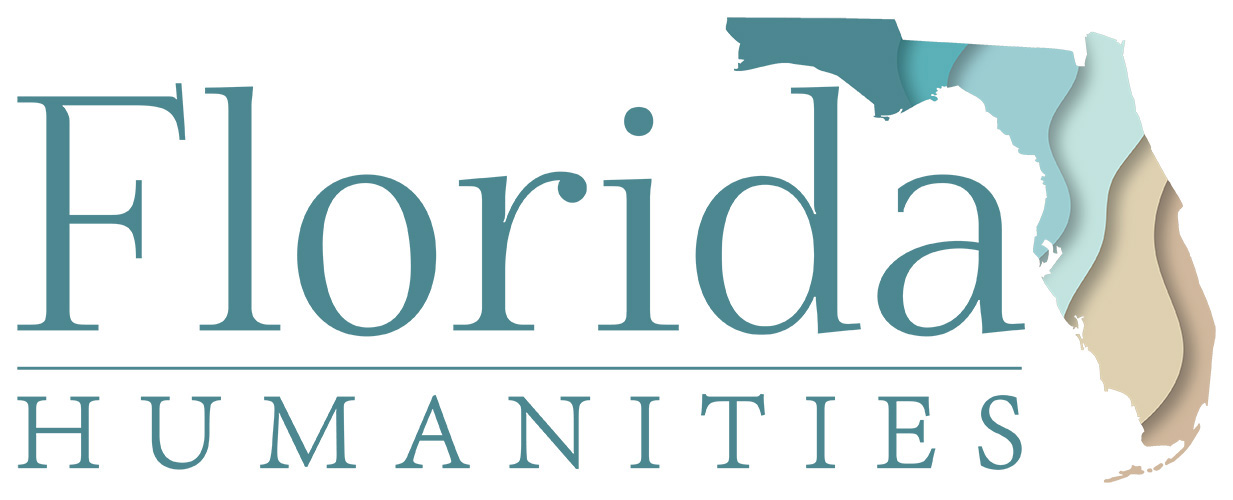
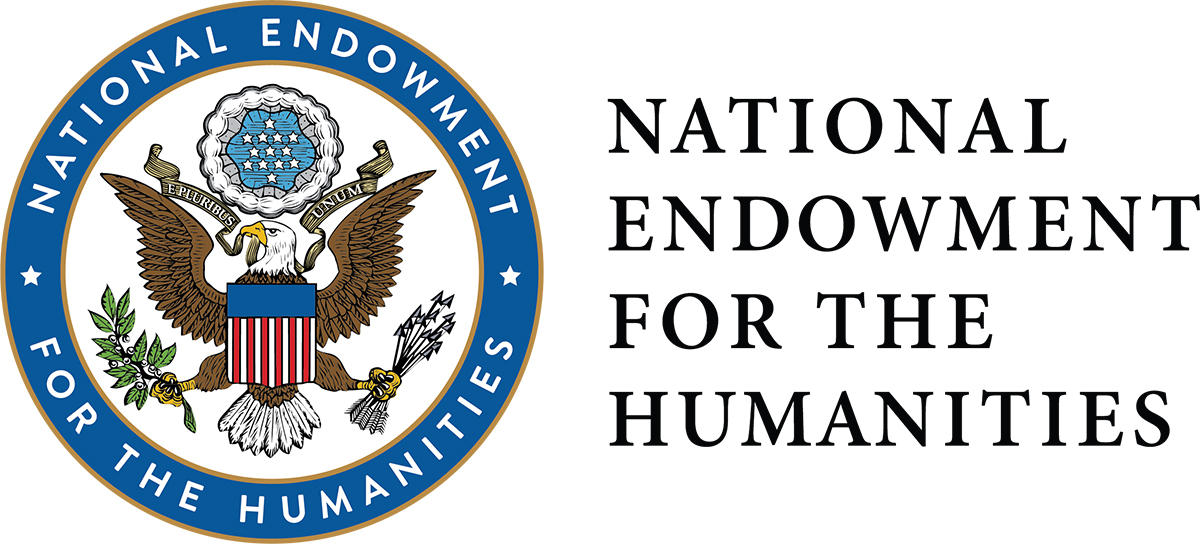
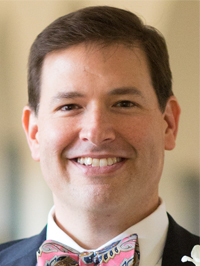 Rodney Kite-Powell is the Director of the Touchton Map Library and the Saunders Foundation Curator of History at the Tampa Bay History Center. He received a Bachelor of Arts from the University of Florida and a Master of Arts from the University of South Florida.
Rodney Kite-Powell is the Director of the Touchton Map Library and the Saunders Foundation Curator of History at the Tampa Bay History Center. He received a Bachelor of Arts from the University of Florida and a Master of Arts from the University of South Florida.
He has written extensively on the history of Tampa and Hillsborough County and is the editor of Tampa Bay History, a regional journal published through a partnership between the History Center and the University of South Florida Libraries. He has also served as an adjunct professor at both The University of Tampa and the University of South Florida, teaching courses on the history of Florida.
His first book, History of Davis Islands: David P. Davis and the Story of a Landmark Tampa Neighborhood, was published in 2013. His latest book, Tampa Bay’s Waterfront: Its History and Development, co-authored with Arthur Savage, was published in 2017.
2019 LECTURE: “The Immigrant Worlds of Ybor City, 1886-1900” (Delivered June 17, 2019)
2023 LECTURE: “The Immigrant World of Tampa and Ybor City, 1886-1900” (Delivered June 19, 2023)
 Gary Mormino is the Frank E. Duckwall professor emeritus in Florida history at University of South Florida-St. Petersburg. He presently holds the position of scholar in residence at the Florida Humanities Council. He earned a dissertation in history from the University of North Carolina and taught at the University of South Florida between 1977 and 2015. His books include The Immigrant World of Ybor City: Italians and Their Latin Neighbors (University of Illinois Press, 1987), co-authored with George Pozzetta, which was awarded the Theodore Saloutos prize for the best book in immigration history. He also wrote Land of Sunshine, State of Dreams: A Social History of Florida (University Press of Florida, 2006), which received the Charlton Tebeau prize for the best book in Florida history. In 2007, PBS and WEDU adapted the book into a documentary, The Florida Dream, which was awarded a regional Emmy. He is also the author of two other volumes: Immigrants on the Hill: Italians in St. Louis (University of Illinois Press, 1986), which was awarded the Howard Marraro Prize for the best book in Italian history, and Spanish Pathways in Florida, 1492-1992 (Pineapple Press, 1992). Mormino has received numerous awards and accolades for his work on Florida history, including being honored with the “Distinguished Author” award by the Florida House of Representatives in 2012, and the 2015 Florida Lifetime Achievement Award in writing. He is presently working on a study of Florida, 2000-2012, a monograph on Florida and WWII, a biography of Millard Caldwell and a history of Florida foodways.
Gary Mormino is the Frank E. Duckwall professor emeritus in Florida history at University of South Florida-St. Petersburg. He presently holds the position of scholar in residence at the Florida Humanities Council. He earned a dissertation in history from the University of North Carolina and taught at the University of South Florida between 1977 and 2015. His books include The Immigrant World of Ybor City: Italians and Their Latin Neighbors (University of Illinois Press, 1987), co-authored with George Pozzetta, which was awarded the Theodore Saloutos prize for the best book in immigration history. He also wrote Land of Sunshine, State of Dreams: A Social History of Florida (University Press of Florida, 2006), which received the Charlton Tebeau prize for the best book in Florida history. In 2007, PBS and WEDU adapted the book into a documentary, The Florida Dream, which was awarded a regional Emmy. He is also the author of two other volumes: Immigrants on the Hill: Italians in St. Louis (University of Illinois Press, 1986), which was awarded the Howard Marraro Prize for the best book in Italian history, and Spanish Pathways in Florida, 1492-1992 (Pineapple Press, 1992). Mormino has received numerous awards and accolades for his work on Florida history, including being honored with the “Distinguished Author” award by the Florida House of Representatives in 2012, and the 2015 Florida Lifetime Achievement Award in writing. He is presently working on a study of Florida, 2000-2012, a monograph on Florida and WWII, a biography of Millard Caldwell and a history of Florida foodways.
2019 LECTURE: “Ybor City Lives: Wars, Revolutions, Great Depression, Great Society, Urban Renewal, and Americanization” (Delivered July 9, 2019)
 Kenya C. Dworkin is a professor of Hispanic studies, with appointments in English, history, global studies, international relations and the Program for Deliberative Democracy at Carnegie Mellon University. Her current book project is Before Latino: How Cuban Theater in Tampa Shaped an American Immigrant Society. Other books include Recovering the U.S. Hispanic Literary Heritage V (5)(Arte Público, 2003), Herencia: The Anthology of U.S. Latino Literature in the United States (Oxford UP, 2003), and En otra voz: Antología de la literatura hispana de los Estados Unidos (Arte Público, 2002). Her most recent articles are “Latin Place Making in the Late 19th & Early 20th Centuries: Cuban Émigrés and their Transnational Impact in Tampa, FL, ELN (October 2018) and “When a "New Deal" Became a Raw Deal: Depression-Era, ‘Latin’ Federal Theatre,” TRANSMODERNITY: Journal of Peripheral Cultural Production of the Luso-Hispanic World (1:1).
Kenya C. Dworkin is a professor of Hispanic studies, with appointments in English, history, global studies, international relations and the Program for Deliberative Democracy at Carnegie Mellon University. Her current book project is Before Latino: How Cuban Theater in Tampa Shaped an American Immigrant Society. Other books include Recovering the U.S. Hispanic Literary Heritage V (5)(Arte Público, 2003), Herencia: The Anthology of U.S. Latino Literature in the United States (Oxford UP, 2003), and En otra voz: Antología de la literatura hispana de los Estados Unidos (Arte Público, 2002). Her most recent articles are “Latin Place Making in the Late 19th & Early 20th Centuries: Cuban Émigrés and their Transnational Impact in Tampa, FL, ELN (October 2018) and “When a "New Deal" Became a Raw Deal: Depression-Era, ‘Latin’ Federal Theatre,” TRANSMODERNITY: Journal of Peripheral Cultural Production of the Luso-Hispanic World (1:1).
2019 LECTURE: "The Cultural World of the Cigar Worker" (Delivered June 18, 2019)
2023 LECTURE: “In Pursuit of the Past: The Socio-Cultural World of the Cigar Worker in Tampa” (Delivered June 21, 2023); Dworkin's PowerPoint Presentation
 Susan D. Greenbaum is an anthropologist who is retired from the University of South Florida Department of Anthropology. Her research has been divided between 35 years of ethnographic and applied work with members of the Afro-Cuban mutual aid society, La Unión Martí Maceo, and long term research on housing, racism and urban displacement. Regarding the former, she published an extensive monograph titled More than Black: Afro-Cubans in Tampa (U Press of Florida 2002) that won three significant awards. She has published and lectured widely on the topic of black Cuban cigarmaker/independence fighters in Tampa, and about the experiences and contributions of their descendants in the Civil Rights movement and local politics. Her other interest in the effects of racism on housing, neighborhoods. and wealth inequality involves research funded by the National Science Foundation to assess consequences of displacement by the HOPE VI program that demolished most of the public housing in Tampa. She is author of the recent book, Blaming the Poor: The Long Shadow of the Moynihan Report on Cruel Images of Poverty (Rutgers University Press 2015).
Susan D. Greenbaum is an anthropologist who is retired from the University of South Florida Department of Anthropology. Her research has been divided between 35 years of ethnographic and applied work with members of the Afro-Cuban mutual aid society, La Unión Martí Maceo, and long term research on housing, racism and urban displacement. Regarding the former, she published an extensive monograph titled More than Black: Afro-Cubans in Tampa (U Press of Florida 2002) that won three significant awards. She has published and lectured widely on the topic of black Cuban cigarmaker/independence fighters in Tampa, and about the experiences and contributions of their descendants in the Civil Rights movement and local politics. Her other interest in the effects of racism on housing, neighborhoods. and wealth inequality involves research funded by the National Science Foundation to assess consequences of displacement by the HOPE VI program that demolished most of the public housing in Tampa. She is author of the recent book, Blaming the Poor: The Long Shadow of the Moynihan Report on Cruel Images of Poverty (Rutgers University Press 2015).
2019 LECTURE: “Más que negro: The Anti-Racism of José Martí and the Afro-Cuban Community of Ybor City” (Delivered June 19, 2019)
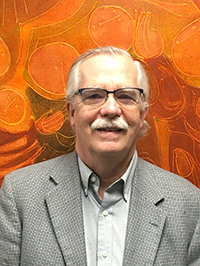 Gerald E. Poyo is O’Connor Professor in the History of Hispanic Texas and the Southwest. In 1983 he received his Ph.D. in Latin American history from the University of Florida. His research has focused on the intersection of Latin American and U.S. Latino history, especially on the history of Cuban exile communities in the United States during the 19th and 20th centuries, the origins of Tejano communities in colonial and Mexican Texas, U.S. Latino Catholic History and Latino history writ large. He is the author and editor of seven books, including ‘With All, and For the Good of All’: The Emergence of Popular Nationalism in the Cuban Communities of the United States, 1848-1898 (Duke University Press, 1989); Cuban Catholics in the United States, 1960-1988: Exile and Integration (University of Notre Dame Press, 2007) and Exile and Revolution: Jose D. Poyo, Key West, and Cuban Independence (Gainesville: University Press of Florida, 2014).
Gerald E. Poyo is O’Connor Professor in the History of Hispanic Texas and the Southwest. In 1983 he received his Ph.D. in Latin American history from the University of Florida. His research has focused on the intersection of Latin American and U.S. Latino history, especially on the history of Cuban exile communities in the United States during the 19th and 20th centuries, the origins of Tejano communities in colonial and Mexican Texas, U.S. Latino Catholic History and Latino history writ large. He is the author and editor of seven books, including ‘With All, and For the Good of All’: The Emergence of Popular Nationalism in the Cuban Communities of the United States, 1848-1898 (Duke University Press, 1989); Cuban Catholics in the United States, 1960-1988: Exile and Integration (University of Notre Dame Press, 2007) and Exile and Revolution: Jose D. Poyo, Key West, and Cuban Independence (Gainesville: University Press of Florida, 2014).
2019 LECTURE: “Key West’s Revolutionary Community, 1868-1898” (Delivered June 20, 2019); Poyo's PowerPoint Presentation
 James J. López is professor of Spanish and co-director of the Center for Martí Studies Affiliate at The University of Tampa. Together with Denis Rey, he organized the 2016 UT-USF International Conference “Martí in Tampa,” which for the first time brought together 20 of the top Martí scholars from Cuba, the U.S. and Mexico in a collaborative effort to study the important relationship between the Cuban patriot and the immigrant cigar workers of Ybor City and West Tampa. In 2014, his Spanish-language translation of the Pulitzer-prize winning play Anna in the Tropics by Nilo Cruz, which is set in the cigar factories of Ybor City in the early 20th century, was produced by the renowned Cuban director Carlos Díaz and Teatro El Público and opened concurrently in Havana and Miami Beach with a mixed Cuban and Cuban-American cast. He is also a literary critic specializing in contemporary Latin American narrative, a translator, was twice awarded the College of Arts and Letters Outstanding Teacher of the Year Award and has led numerous study abroad courses to Cuba and Perú. López is a Tampa native and the grandson of cigar workers, including the last living lector, or reader, a position which figures prominently in the history that will be studied during this institute.
James J. López is professor of Spanish and co-director of the Center for Martí Studies Affiliate at The University of Tampa. Together with Denis Rey, he organized the 2016 UT-USF International Conference “Martí in Tampa,” which for the first time brought together 20 of the top Martí scholars from Cuba, the U.S. and Mexico in a collaborative effort to study the important relationship between the Cuban patriot and the immigrant cigar workers of Ybor City and West Tampa. In 2014, his Spanish-language translation of the Pulitzer-prize winning play Anna in the Tropics by Nilo Cruz, which is set in the cigar factories of Ybor City in the early 20th century, was produced by the renowned Cuban director Carlos Díaz and Teatro El Público and opened concurrently in Havana and Miami Beach with a mixed Cuban and Cuban-American cast. He is also a literary critic specializing in contemporary Latin American narrative, a translator, was twice awarded the College of Arts and Letters Outstanding Teacher of the Year Award and has led numerous study abroad courses to Cuba and Perú. López is a Tampa native and the grandson of cigar workers, including the last living lector, or reader, a position which figures prominently in the history that will be studied during this institute.
2019 LECTURE: “Jose Martí: Life and Works” (Delivered June 24, 2019)
2023 LECTURE: “Multiple Martís” (Delivered on June 26, 2023); Lopez' PowerPoint Presentation
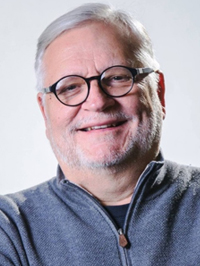 Lisandro Pérez is a Professor of Latin American and Latino Studies at John Jay College, City University of New York. He was on the faculty of Florida International University for twenty-five years, where he served for thirteen years as Director of its Cuban Research Institute, which he established in 1991. He was editor of the journal Cuban Studies, and author of numerous publications on Cuba and Cuban Americans. Sugar, Cigars, and Revolution: The Making of Cuban New York (NYU Press, 2018) is the culmination of years of research on the Cuban community in New York City during the nineteenth century. It is the first comprehensive study of that community, which was the largest concentration of Latinos in the U.S. Northeast during that century. The book won Honorable Mention in the 2019 competition for the best book written on Latinos in the U.S., held by Casa de las Américas in Havana, which published in 2020 a Spanish edition, Azúcar, tabaco y revolución: La forja del Nueva York cubano.
Lisandro Pérez is a Professor of Latin American and Latino Studies at John Jay College, City University of New York. He was on the faculty of Florida International University for twenty-five years, where he served for thirteen years as Director of its Cuban Research Institute, which he established in 1991. He was editor of the journal Cuban Studies, and author of numerous publications on Cuba and Cuban Americans. Sugar, Cigars, and Revolution: The Making of Cuban New York (NYU Press, 2018) is the culmination of years of research on the Cuban community in New York City during the nineteenth century. It is the first comprehensive study of that community, which was the largest concentration of Latinos in the U.S. Northeast during that century. The book won Honorable Mention in the 2019 competition for the best book written on Latinos in the U.S., held by Casa de las Américas in Havana, which published in 2020 a Spanish edition, Azúcar, tabaco y revolución: La forja del Nueva York cubano.
2019 LECTURE: “José Martí, New Yorker” (Delivered June 21, 2019)
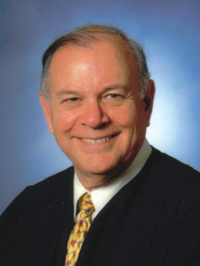 The Honorable Judge Emiliano J. Salcines has been a member of the Florida Bar for the last 50 years. A career federal and state prosecuting attorney for 22 years, he was the elected State (Prosecuting) Attorney in Tampa for 16 years. Besides his B.A. and J.D. degrees, he has two Honorary Doctorate degrees. He was knighted by King Juan Carlos of Spain and received the 2008 Good Government Award from Hillsborough County, which annually awards the E. J. Salcines Lifetime Leadership Award. He received the “Champion of Justice Award” from the Tampa Bay Trial Lawyers Association. Judge Salcines is a recognized authority on the history of Florida. He is a frequent speaker at state and local historical society conferences and conventions. He is a founding member and trustee of the Tampa Bay History Center and former vice president of the Tampa Historical Society. He was president of the West Tampa Centennial Society and chairman of Tampa’s award-winning activities celebrating the 500th anniversary of Christopher Columbus’ discovery of America that brought the replicas of Columbus’ three ships to Tampa Bay. He currently is the U. S. representative on the Board of Trustees of the Museum of Immigration in Spain.
The Honorable Judge Emiliano J. Salcines has been a member of the Florida Bar for the last 50 years. A career federal and state prosecuting attorney for 22 years, he was the elected State (Prosecuting) Attorney in Tampa for 16 years. Besides his B.A. and J.D. degrees, he has two Honorary Doctorate degrees. He was knighted by King Juan Carlos of Spain and received the 2008 Good Government Award from Hillsborough County, which annually awards the E. J. Salcines Lifetime Leadership Award. He received the “Champion of Justice Award” from the Tampa Bay Trial Lawyers Association. Judge Salcines is a recognized authority on the history of Florida. He is a frequent speaker at state and local historical society conferences and conventions. He is a founding member and trustee of the Tampa Bay History Center and former vice president of the Tampa Historical Society. He was president of the West Tampa Centennial Society and chairman of Tampa’s award-winning activities celebrating the 500th anniversary of Christopher Columbus’ discovery of America that brought the replicas of Columbus’ three ships to Tampa Bay. He currently is the U. S. representative on the Board of Trustees of the Museum of Immigration in Spain.
2019 LECTURE: "José Martí in Tampa: 20 Documented Visits” (Delivered June 24, 2019)
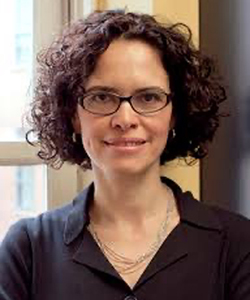 Ada Ferrer is Julius Silver Professor of History and Latin American and Caribbean Studies at New York University, where she has taught since 1995. She is the author of Insurgent Cuba: Race, Nation, and Revolution, 1868–1898, winner of the Berkshire Book Prize for the best first book by a woman in any field of history, and Freedom’s Mirror: Cuba and Haiti in the Age of Revolution, which won the Frederick Douglass Book Prize from the Gilder Lehrman Center at Yale University as well as multiple prizes from the American Historical Association. Born in Cuba and raised in the United States, she has been traveling to and conducting research on the island since 1990.
Ada Ferrer is Julius Silver Professor of History and Latin American and Caribbean Studies at New York University, where she has taught since 1995. She is the author of Insurgent Cuba: Race, Nation, and Revolution, 1868–1898, winner of the Berkshire Book Prize for the best first book by a woman in any field of history, and Freedom’s Mirror: Cuba and Haiti in the Age of Revolution, which won the Frederick Douglass Book Prize from the Gilder Lehrman Center at Yale University as well as multiple prizes from the American Historical Association. Born in Cuba and raised in the United States, she has been traveling to and conducting research on the island since 1990.
2023 LECTURE: “Cuba and Beyond: Martí on Race, Empire, and Revolution” (Delivered on June 28, 2023)
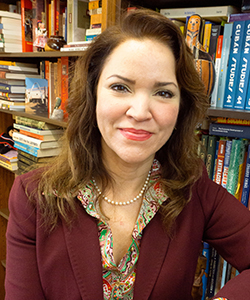 Lillian Guerra is the author of many scholarly articles and essays as well as four published books of history: Popular Expression and National Identity in Puerto Rico (University Press of Florida, 1998), The Myth of José Martí: Conflicting Nationalisms in Early Twentieth-Century Cuba (University of North Carolina Press, 2005), and Visions of Power in Cuba: Revolution, Redemption and Resistance, 1959-1971 (University of North Carolina Press, 2012). Visions of Power in Cuba received the 2014 Bryce Wood Book Award from the Latin American Studies Association, its most prestigious prize for a book on Latin America across all fields. Dr. Guerra’s fourth book, published by Yale University Press in 2018, is titled Heroes, Martyrs and Political Messiahs in Revolutionary Cuba, 1946-1958. She is currently completing a fifth book of history, titled Patriots and Traitors in Cuba: Political Pedagogy, Rehabilitation and Vanguard Youth, 1961-1981, under contract with Duke University Press. Among other awards, Professor Guerra has received a Guggenheim Fellowship, an American Council of Learned Societies Fellowship and an Emmy Award as lead scholar for the 2017 documentary, The Forgotten Revolution.
Lillian Guerra is the author of many scholarly articles and essays as well as four published books of history: Popular Expression and National Identity in Puerto Rico (University Press of Florida, 1998), The Myth of José Martí: Conflicting Nationalisms in Early Twentieth-Century Cuba (University of North Carolina Press, 2005), and Visions of Power in Cuba: Revolution, Redemption and Resistance, 1959-1971 (University of North Carolina Press, 2012). Visions of Power in Cuba received the 2014 Bryce Wood Book Award from the Latin American Studies Association, its most prestigious prize for a book on Latin America across all fields. Dr. Guerra’s fourth book, published by Yale University Press in 2018, is titled Heroes, Martyrs and Political Messiahs in Revolutionary Cuba, 1946-1958. She is currently completing a fifth book of history, titled Patriots and Traitors in Cuba: Political Pedagogy, Rehabilitation and Vanguard Youth, 1961-1981, under contract with Duke University Press. Among other awards, Professor Guerra has received a Guggenheim Fellowship, an American Council of Learned Societies Fellowship and an Emmy Award as lead scholar for the 2017 documentary, The Forgotten Revolution.
2023 LECTURE: “Leaving Martí to Martí: Why the Facts, Contexts & Motives of Martí's Writing Matter” (Delivered on June 29, 2023)
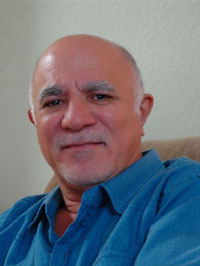 Gabriel Cartaya holds a master’s degree in Latin American, Caribbean and Cuban studies from the University of Havana, where he worked as a professor and researcher. He is a recognized Martí specialist, author of the books Con las últimas páginas de José Martí (Editorial Oriente, Cuba, 1995), José Martí en 1895 (Bayamo, Cuba, 2001) and Luz al universo (Gente Nueva, La Habana, 2006). In 2010 he founded the Revista Surco Sur, a journal dedicated to Latin American art and literature. Its digital edition is published by the University of South Florida. He is the Spanish language editor of La Gaceta newspaper in Tampa, the nation’s only trilingual newspaper (English-Spanish-Italian) that has been published continuously since its establishment in 1922 under the guidance of the iconic Manteiga family.
Gabriel Cartaya holds a master’s degree in Latin American, Caribbean and Cuban studies from the University of Havana, where he worked as a professor and researcher. He is a recognized Martí specialist, author of the books Con las últimas páginas de José Martí (Editorial Oriente, Cuba, 1995), José Martí en 1895 (Bayamo, Cuba, 2001) and Luz al universo (Gente Nueva, La Habana, 2006). In 2010 he founded the Revista Surco Sur, a journal dedicated to Latin American art and literature. Its digital edition is published by the University of South Florida. He is the Spanish language editor of La Gaceta newspaper in Tampa, the nation’s only trilingual newspaper (English-Spanish-Italian) that has been published continuously since its establishment in 1922 under the guidance of the iconic Manteiga family.
2019 LECTURE: “Tampa’s Response to José Martí” (Delivered June 25, 2019)
 Esther Allen translated, edited and annotated the Selected Writings of José Martí (Penguin Classics, 2002), named a Notable Book of 2002 by the Los Angeles Times Book Review and selected by the Guardian in 2015 as one of the 10 best books for understanding Cuba. A professor in the doctoral programs in French and in Latin American, Iberian and Latino cultures at the City University of New York Graduate Center, and in the Modern Languages Department at Baruch College, CUNY, she is writing a biography of Martí to be published by Henry Holt & Co.
Esther Allen translated, edited and annotated the Selected Writings of José Martí (Penguin Classics, 2002), named a Notable Book of 2002 by the Los Angeles Times Book Review and selected by the Guardian in 2015 as one of the 10 best books for understanding Cuba. A professor in the doctoral programs in French and in Latin American, Iberian and Latino cultures at the City University of New York Graduate Center, and in the Modern Languages Department at Baruch College, CUNY, she is writing a biography of Martí to be published by Henry Holt & Co.
2019 LECTURE: “José Martí as a U.S. Writer” (Delivered June 26, 2019)
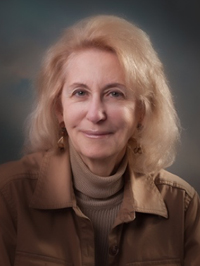 Anne (Anita) Fountain is professor emerita of Spanish at San José State University. Her books about Martí include: José Martí and U.S. Writers (2003); Versos Sencillos: A Dual Language Edition) 2005; José Martí, the United States, and Race (2014); and Ramona: Novela Americana, edición crítica (2018). She has authored numerous articles, chapters and reviews about Martí and Cuban topics and done more than 70 presentations and workshops dealing with Cuba and Martí. Recent publications are: “Teaching the Latin American Emerson" in Approaches to Teaching the Works of Ralph Waldo Emerson, edited by Mark C. Long and Sean Ross Meehan, Modern Language Association, 2018; and “Martí and Emerson: Close Reading, Context, and Translation” in Syncing the Americas: José Martí and the New Modernity, Bucknell University Press, 2017. In addition, she has translated extensively from Cuban authors including Nancy Alonso, Marilyn Bobes, Senel Paz, Leonardo Padura Fuentes and Aida Bahr.
Anne (Anita) Fountain is professor emerita of Spanish at San José State University. Her books about Martí include: José Martí and U.S. Writers (2003); Versos Sencillos: A Dual Language Edition) 2005; José Martí, the United States, and Race (2014); and Ramona: Novela Americana, edición crítica (2018). She has authored numerous articles, chapters and reviews about Martí and Cuban topics and done more than 70 presentations and workshops dealing with Cuba and Martí. Recent publications are: “Teaching the Latin American Emerson" in Approaches to Teaching the Works of Ralph Waldo Emerson, edited by Mark C. Long and Sean Ross Meehan, Modern Language Association, 2018; and “Martí and Emerson: Close Reading, Context, and Translation” in Syncing the Americas: José Martí and the New Modernity, Bucknell University Press, 2017. In addition, she has translated extensively from Cuban authors including Nancy Alonso, Marilyn Bobes, Senel Paz, Leonardo Padura Fuentes and Aida Bahr.
2019 LECTURE: "José Martí and American Thinkers" (Delivered June 27, 2019)
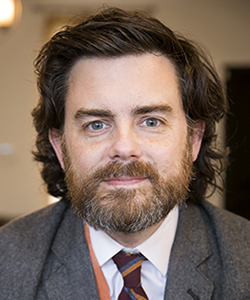 Clay Risen Clay Risen is the deputy op-ed editor at The New York Times, where he oversees the daily production of the newspaper’s opinion section. A ten-year veteran of The Times, Risen also writes frequently for its business, metropolitan and food and drink sections.
Clay Risen Clay Risen is the deputy op-ed editor at The New York Times, where he oversees the daily production of the newspaper’s opinion section. A ten-year veteran of The Times, Risen also writes frequently for its business, metropolitan and food and drink sections.
He is the author of three critically acclaimed works of history, most recently The Crowded Hour: Theodore Roosevelt, the Rough Riders and the Dawn of the American Century, which The New York Times book review named one of its 50 notable works of nonfiction for 2019. His two previous historical works are The Bill of the Century: The Epic Battle for the Civil Rights Act and A Nation on Fire: America in the Wake of the King Assassination. He has also written two books on whiskey, Sing Malt: A Guide to the Whiskies of Scotland and American Whiskey, Bourbon and Rye: A Guide to the Nation’s Favorite Spirit.
Risen received his undergraduate degree from the School of Foreign Service at Georgetown University and a master's degree in social science from the University of Chicago. Before coming to the Times, he worked for The New Republic and Democracy: A Journal of Ideas.
Raised in Nashville, Tennessee, Risen now lives in Brooklyn, New York, with his wife and two children.
2023 LECTURE: “The War of 1898: U.S. Intervention in the War for Cuban Independence” (Delivered on July 3, 2023)
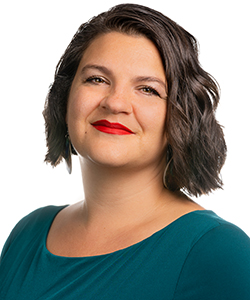 Bonnie A. Lucero, is a historian of Latin America and the Caribbean. Her research examines the intersections of race and gender in Cuba. She is co-editor of Voices of Crime: Constructing and Contesting Social Control in Modern Latin America (2016). Her first monograph, Revolutionary Masculinity and Racial Inequality: Gendering War and Politics in Cuba, 1895-1902 (2018), explores how Cuban soldiers employed ideas about manhood to negotiate racial hierarchy during the transition from colony to republic. Her second monograph, A Cuban City, Segregated: Race and Urbanization in the Nineteenth Century (2019) examines the lived experiences of people of African descent in Cienfuegos during the long nineteenth century. Her current project, titled Malthusian Practices: A History of Race and Reproduction in Cuba since Colonial Times, interrogates how laws regulating women’s reproduction historically perpetuated gender-specific forms of racial inequality over four centuries. Dr. Lucero is Associate Professor of History and Director of the Center for Latino Studies at the University of Houston-Downtown. She holds a PhD in History from the University of North Carolina-Chapel Hill, an MPhil in Latin American Studies from the University of Cambridge, and a BA in International Relations and Spanish from the University of the Pacific. She is from Richmond, California.
Bonnie A. Lucero, is a historian of Latin America and the Caribbean. Her research examines the intersections of race and gender in Cuba. She is co-editor of Voices of Crime: Constructing and Contesting Social Control in Modern Latin America (2016). Her first monograph, Revolutionary Masculinity and Racial Inequality: Gendering War and Politics in Cuba, 1895-1902 (2018), explores how Cuban soldiers employed ideas about manhood to negotiate racial hierarchy during the transition from colony to republic. Her second monograph, A Cuban City, Segregated: Race and Urbanization in the Nineteenth Century (2019) examines the lived experiences of people of African descent in Cienfuegos during the long nineteenth century. Her current project, titled Malthusian Practices: A History of Race and Reproduction in Cuba since Colonial Times, interrogates how laws regulating women’s reproduction historically perpetuated gender-specific forms of racial inequality over four centuries. Dr. Lucero is Associate Professor of History and Director of the Center for Latino Studies at the University of Houston-Downtown. She holds a PhD in History from the University of North Carolina-Chapel Hill, an MPhil in Latin American Studies from the University of Cambridge, and a BA in International Relations and Spanish from the University of the Pacific. She is from Richmond, California.
2023 LECTURE: “Revolutionary Masculinity and Racial Inequality: Gendering War and Politics in Central Cuba, 1895-1902” (Delivered on July 5, 2023)
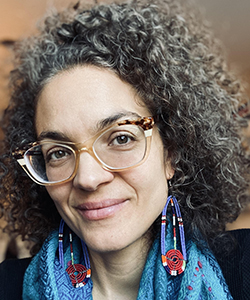 Dalia Antonia Caraballo Muller is an historian interested in the movement of ideas and people across space and time in the Americas. She is a graduate from Yale University and the University of California, Berkeley, where she studied Latin American and Caribbean history. She is the author of Cuban Émigrés and Independence in the Nineteenth-Century Gulf World published by UNC Press (2017), and is currently at work on two book projects, one exploring black and African, liberatory and non-national political ideas in early twentieth-century Cuba; and, another which is a long history of the interconnected “Gulf World” in the Americas. In addition to teaching and research, Dr. Muller has served as Associate Dean of Undergraduate Education and Director of the University Honors College at the University at Buffalo.
Dalia Antonia Caraballo Muller is an historian interested in the movement of ideas and people across space and time in the Americas. She is a graduate from Yale University and the University of California, Berkeley, where she studied Latin American and Caribbean history. She is the author of Cuban Émigrés and Independence in the Nineteenth-Century Gulf World published by UNC Press (2017), and is currently at work on two book projects, one exploring black and African, liberatory and non-national political ideas in early twentieth-century Cuba; and, another which is a long history of the interconnected “Gulf World” in the Americas. In addition to teaching and research, Dr. Muller has served as Associate Dean of Undergraduate Education and Director of the University Honors College at the University at Buffalo.
2023 LECTURE: “Cuban Émigrés and Independence in the Nineteenth-Century Gulf World” (Delivered on July 6, 2023)
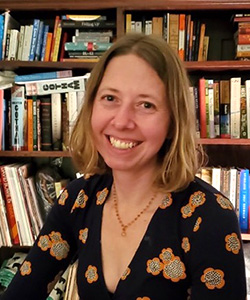 Kelley Kreitz is an associate professor of English and an affiliate faculty member in Latinx Studies at Pace University in New York City, where she also directs the university's digital humanities center, Babble Lab. Her research on U.S.-based Spanish-language print culture has appeared in American Literary History, American Periodicals, English Language Notes, Revista de Estudios Hispánicos, and the digital mapping project C19LatinoNYC.org. She was a co-director of the 2020 NEH Summer Institute, “City of Print” on New York City print history, and she is currently co-directing the NEH-funded working group, “Pursuing the Potential of Digital Mapping in Latinx Studies.” She serves on the board of the Recovering the US Hispanic Literary Heritage Project at the University of Houston and the steering committee of New York City Digital Humanities (NYCDH). She is completing a book called Electrifying News: A Hemispheric History of the Present in Nineteenth-Century Print Culture.
Kelley Kreitz is an associate professor of English and an affiliate faculty member in Latinx Studies at Pace University in New York City, where she also directs the university's digital humanities center, Babble Lab. Her research on U.S.-based Spanish-language print culture has appeared in American Literary History, American Periodicals, English Language Notes, Revista de Estudios Hispánicos, and the digital mapping project C19LatinoNYC.org. She was a co-director of the 2020 NEH Summer Institute, “City of Print” on New York City print history, and she is currently co-directing the NEH-funded working group, “Pursuing the Potential of Digital Mapping in Latinx Studies.” She serves on the board of the Recovering the US Hispanic Literary Heritage Project at the University of Houston and the steering committee of New York City Digital Humanities (NYCDH). She is completing a book called Electrifying News: A Hemispheric History of the Present in Nineteenth-Century Print Culture.
2023 LECTURE: “Revolution and Latinidad in the Nineteenth-Century U.S.-based Spanish-language Press” (Delivered on July 7, 2023)
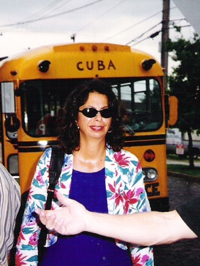 Maura Barrios is a community historian focused on the history of Tampa’s Cuban communities of West Tampa and Ybor City and the connections between Tampa and Cuba. Barrios was curator of the Ybor State Museum exhibit, “Tampa Y Cuba: More Than 100 Years,” 2007. In 2004 she received a major grant from the Florida Humanities Council for the community autobiography project, “Our West Side Stories: Voces de West Tampa, 2005-06.” Barrios earned a master’s degree in Latin American history from the University of South Florida in 1998. She has presented her work at the Latin American Studies Association, Florida International University-Cuban Research Institute, New College, Tampa Bay History Center, Carnegie Mellon University, University of Houston, and Latino Arts and Culture Institute.
Maura Barrios is a community historian focused on the history of Tampa’s Cuban communities of West Tampa and Ybor City and the connections between Tampa and Cuba. Barrios was curator of the Ybor State Museum exhibit, “Tampa Y Cuba: More Than 100 Years,” 2007. In 2004 she received a major grant from the Florida Humanities Council for the community autobiography project, “Our West Side Stories: Voces de West Tampa, 2005-06.” Barrios earned a master’s degree in Latin American history from the University of South Florida in 1998. She has presented her work at the Latin American Studies Association, Florida International University-Cuban Research Institute, New College, Tampa Bay History Center, Carnegie Mellon University, University of Houston, and Latino Arts and Culture Institute.
2019 LECTURE: “West Tampa: The Living Museum” (Delivered July 9, 2019)
 Michael L. Conniff, an emeritus professor of history at San Jose State University, earned degrees at UC Berkeley and Stanford and has published books and articles on modern history, most recently Modern Panama (forthcoming 2019, with Gene Bigler) and A New History of Modern Latin America (2017, with Lawrence Clayton and Susan Gauss). He has lived overseas over a dozen years, held several post-docs (including three Fulbright tours), and served in the U.S. Peace Corps. He lectures often in Portuguese and Spanish. Before his current position, he taught history at the University of New Mexico and later created Latin American studies programs at Auburn University and the University of South Florida. He also founded the Global Studies program at San Jose State. He spent spring semester 2014 as the Bacardi Eminent Professor of Latin American Studies at the University of Florida. He won and managed grants and contracts worth $4 million.
Michael L. Conniff, an emeritus professor of history at San Jose State University, earned degrees at UC Berkeley and Stanford and has published books and articles on modern history, most recently Modern Panama (forthcoming 2019, with Gene Bigler) and A New History of Modern Latin America (2017, with Lawrence Clayton and Susan Gauss). He has lived overseas over a dozen years, held several post-docs (including three Fulbright tours), and served in the U.S. Peace Corps. He lectures often in Portuguese and Spanish. Before his current position, he taught history at the University of New Mexico and later created Latin American studies programs at Auburn University and the University of South Florida. He also founded the Global Studies program at San Jose State. He spent spring semester 2014 as the Bacardi Eminent Professor of Latin American Studies at the University of Florida. He won and managed grants and contracts worth $4 million.
2019 LECTURE: “The Spanish-American War and Semi-Independence I and II” (Delivered July 1, 2019)
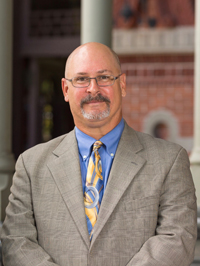 Denis Rey is a political scientist specializing in international relations and Latin American politics. His scholarship has appeared in academic journals such as Global Environmental Politics, Journal of Information Technology and Politics, and Social Science Quarterly. His current research seeks to understand Cuba’s integration into the global economy and how trade affects artistic expression in the Caribbean and Latin America. He has presented his research at the Cuba at the Crossroads symposium at Rollins College; the international conference, Les Partenariats Transatlantique et Transpacifique a l ere de l Interconnexion , organized by Centre D’Estudes Sur L’Integration et la Mondialisation at the University of Quebec at Montreal, Canada; and the Caribbean Studies Association 2017 annual conference in Nassau, Bahamas. Rey, who was born in Cuba, immigrated to the United States in 1968. He has traveled extensively throughout Cuba and has taught courses in Havana that focus on US-Cuba relations.
Denis Rey is a political scientist specializing in international relations and Latin American politics. His scholarship has appeared in academic journals such as Global Environmental Politics, Journal of Information Technology and Politics, and Social Science Quarterly. His current research seeks to understand Cuba’s integration into the global economy and how trade affects artistic expression in the Caribbean and Latin America. He has presented his research at the Cuba at the Crossroads symposium at Rollins College; the international conference, Les Partenariats Transatlantique et Transpacifique a l ere de l Interconnexion , organized by Centre D’Estudes Sur L’Integration et la Mondialisation at the University of Quebec at Montreal, Canada; and the Caribbean Studies Association 2017 annual conference in Nassau, Bahamas. Rey, who was born in Cuba, immigrated to the United States in 1968. He has traveled extensively throughout Cuba and has taught courses in Havana that focus on US-Cuba relations.
2019 LECTURE: “The Geopolitical Consequences of the Spanish-Cuban-American War” (Delivered July 5, 2019)
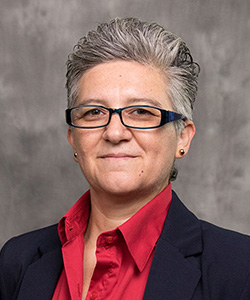 Carolina A. Villarroel holds a Ph.D. in Spanish literature with a specialization in U.S. Latino Literature and Women's Studies. She is the former archivist in charge of the Mexican American and African American Collections at the Houston Metropolitan Research Center at the Houston Public Library and in 2011, she became a Certified Archivist through the Academy of Certified Archivists. Her expertise in U.S. Latino culture and literature has been fundamental to her positions at the University of Houston (UH), where she is the Brown Foundation Director of Research of the Recovering the U.S. Hispanic Literary Heritage, a national program whose goal is to identify, preserve, study, and make accessible the written production of Latinos/as in the United States from the colonial period until 1980. Dr. Villarroel also teaches literature, research methods, and gender studies at the University of Houston. She and her colleague, Gabriela Baeza Ventura, are co-founders of the first US Latina/o digital humanities Center (USLDH.)
Carolina A. Villarroel holds a Ph.D. in Spanish literature with a specialization in U.S. Latino Literature and Women's Studies. She is the former archivist in charge of the Mexican American and African American Collections at the Houston Metropolitan Research Center at the Houston Public Library and in 2011, she became a Certified Archivist through the Academy of Certified Archivists. Her expertise in U.S. Latino culture and literature has been fundamental to her positions at the University of Houston (UH), where she is the Brown Foundation Director of Research of the Recovering the U.S. Hispanic Literary Heritage, a national program whose goal is to identify, preserve, study, and make accessible the written production of Latinos/as in the United States from the colonial period until 1980. Dr. Villarroel also teaches literature, research methods, and gender studies at the University of Houston. She and her colleague, Gabriela Baeza Ventura, are co-founders of the first US Latina/o digital humanities Center (USLDH.)
2023 LECTURE: “Digital Humanities Workshop: Researching the Cuban Émigré Press of the Nineteenth Century” (Delivered on July 10, 2023)